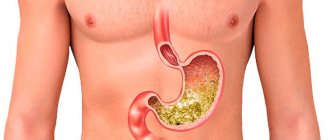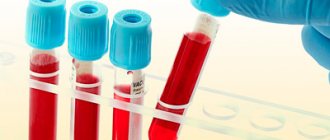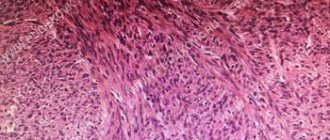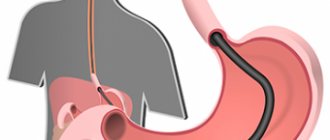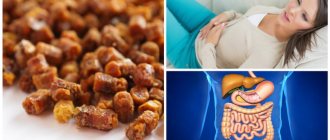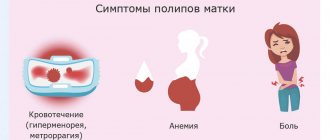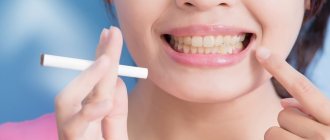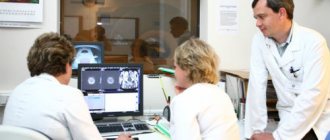In cases where bad breath is bothersome, the first thing people pay attention to is the oral cavity. They also remember what products were consumed and what could cause this situation. It’s good when everything gets by with the fact that the trouble turns out to have happened because of the onion or garlic that was eaten. But it happens that the smell is a symptom of stomach diseases. In such cases, you should pay attention to your health and eliminate the cause.
What does an unpleasant odor mean?
Halitosis is a phenomenon of bad breath.
This phenomenon of bad breath is called halitosis. In fact, there are quite a few reasons that can cause such trouble.
But, if we take into account that this problem is related to the stomach, it is worthwhile to find the cause and possible disease as quickly as possible.
A very common problem that contributes to bad breath is problems with the digestive system. Everyone knows about such a disease as gastritis, many are even familiar with it. This is the first, most common disease, which gives such a symptom as halitosis.
Also, a disease such as an ulcer gives the same symptoms. Accompanied by bad breath, there may be dysbacteriosis, flatulence, constipation, diarrhea, gastroenterocolitis, duodenitis. There are stomach diseases that are caused by bacteria, viruses, allergies, all of which can cause halitosis.
This symptom can occur due to both food and drug poisoning.
Heartburn and related symptoms
The general clinical picture will help determine a preliminary diagnosis and conduct only the necessary studies.
Heartburn 15-20 minutes after eating is the result of dietary errors or stomach diseases. After eating, an “acid pocket” forms in the upper part of the stomach; from this reservoir, the contents flow back into the esophagus. With hyperacid gastritis, heartburn is accompanied by sharp pain in the epigastrium. With hypoacid gastritis, the pain is dull, often combined with constipation and bloating.
Heartburn before or at the beginning of a meal is gastroesophageal reflux.
Heartburn with bile indicates pathology of the liver and gallbladder. A burning sensation in the esophagus occurs 30 minutes to 2 hours after eating, driving or cycling and is accompanied by heaviness/pain in the right hypochondrium.
Heartburn after a course of antibiotics - a violation of the microflora (dysbacteriosis) provokes increased gas formation and an increase in intra-abdominal pressure.
Heartburn and bitterness in the mouth in the morning are the result of overeating at night, following a strict diet for weight loss, and eating “provoking” foods.
Heartburn and diarrhea (diarrhea) are signs of an inflammatory process in the gastrointestinal tract. Body temperature often rises.
Heartburn and bloating - consumption of coarse fiber, overeating, dysbiosis, chronic constipation, intolerance to dairy products.
Cough with heartburn - GERD, smoker's bronchitis.
Heartburn, nausea and vomiting - gastritis, ulcers and erosions of the stomach, side effects of medication. drugs, stomach cancer.
Heartburn, dizziness and weakness - gastrointestinal disease is combined with anemia/hypotension. The sudden appearance of painful symptoms may indicate a hypertensive crisis or developing myocardial infarction. Antacids don't help.
Heartburn and belching - occurs when eating avidly, talking while eating, or a hiatal hernia.
Gastritis
Gastritis can cause bad breath.
But the reason may be a person's diet. Namely, this applies to poor nutrition, non-compliance with the regime, quick dry snacks, and alcohol.
All this contributes to inflammation of the mucous membrane, thereby disrupting the process of digesting food, as a result of which a person gets halitosis.
But this, as already mentioned, is only a symptom, the problem lies in gastritis, which is simply inevitable with this method of eating.
Heartburn in children
In addition to problems with the digestive tract and dietary errors, heartburn in children can be caused by completely non-trivial reasons:
- neurological pathology,
- scoliosis,
- cystic fibrosis,
- ENT pathology,
- lung diseases.
In most children, heartburn is not as severe as in adults. However, unpleasant sensations cause discomfort to babies. Infants arch their backs, often burp, release gases and are capricious. At the same time, even with the slightest nutritional disorder in children, pain comes to the fore. Even slight bloating causes regularly recurring attacks of intestinal colic, and heartburn often leads to vomiting and refusal to eat. This can lead to insufficient weight gain, and uncontrollable vomiting quickly leads to dehydration.
Tips for parents for heartburn in children
- After feeding, the baby should be held upright for a while.
- If you have heartburn, first of all you should analyze your diet and diet, exclude all foods that cause heartburn (including limiting carbohydrates).
- Don't delay visiting the pediatrician. Against the background of prolonged heartburn and indigestion, anemia, apnea, and wheezing in the lungs may develop.
Important! It is necessary to exclude congenital anomalies of the digestive sphincter, intolerance to milk proteins and celiac disease.
What will help solve the problem?
If you have gastritis, you need to seek help from a specialist.
If this problem is not related to the regime and the digestive process, but is a disease, treatment and prevention of diseases is needed under the supervision of a doctor.
With such diseases, it is very important to consult a doctor for help, since prolonging the disease can lead to more serious consequences. In such situations, diseases require long-term treatment.
It is also worth remembering that not all medications can be taken without consulting a doctor and a full examination. Most often, for gastritis, medications are prescribed that reduce acidity and help in the regeneration of the mucous membrane.
There may be cases when antibiotics and painkillers are needed, it all depends on the disease itself and the stage.
Heartburn in pregnant women
Heartburn bothers 30-50% of pregnant women. In the absence of organic damage to the digestive tract, burning along the esophagus (functional heartburn) is caused by hormonally caused relaxation of the lower esophageal sphincter, increased pressure in the abdominal cavity and displacement of the stomach due to an increase in the size of the uterus. However, it is possible that the expectant mother develops a gastrointestinal disease or that an existing pathology has worsened.
Typically, heartburn first appears in the 20th week of pregnancy and torments the woman until childbirth. A common myth is that burning sensation in the esophagus is caused by hair growth on the fetal head. Expectant mothers should take care of proper nutrition and daily routine, and not believe in prejudices.
Pregnant women are not recommended to take antacid medications on their own. First, some medications can negatively affect the fetus. Secondly, it is extremely undesirable to trigger a serious illness. Malabsorption of nutrients can lead to fetal malnutrition and other abnormalities.
Important! Functional heartburn does not harm the unborn baby. The first step to getting rid of a burning sensation in the esophagus is maintaining proper nutrition.
Diet
The diet will help improve digestion.
There are general rules that can significantly improve digestion and help with stomach pathologies, thereby getting rid of unpleasant symptoms. The first thing you should do is adjust your diet:
- Be sure to include healthy foods;
- Eliminate fast food;
- Refrain from taking processed foods;
- You should not eat spicy food;
- Carbonated drinks are prohibited.
The diet itself should consist of frequent meals, but in small portions. When creating a menu, you should pay attention to the following products:
- Be careful when consuming sugar and carbohydrates, if possible completely eliminate them from the diet. The same applies to confectionery products.
- As for fatty foods, they should be consumed in small quantities.
- Also reduce your consumption of fried and salty foods.
- It is better to limit yourself to drinking coffee and tea during the treatment period. But you should avoid products such as milk and cottage cheese.
- If possible, consume meat in limited quantities.
- Everyone knows about the benefits of fruits, but few people know that they cause fermentation and bloating, so you should exclude plums, grapes, and sour apples.
- But fermented milk products will be very useful. They have a beneficial effect on digestive processes and restore the balance of microflora. It is worth paying attention to those products that contain acidophilus and bifidobacteria.
- Vegetables and fruits contribute well to normal digestion, with the exception of those that cause fermentation. In addition, they saturate the body with vitamins.
- Do not forget about drinking water, which is very important and necessary for the body.
What measures should be taken to prevent halitosis?
Visiting the dentist at least twice a year and practicing good oral hygiene is a good way to prevent halitosis. It's important to know that it's not just your teeth and dentures that you should brush. Plaque on the tongue is an environment in which bacteria readily multiply, so it is necessary to get rid of it. To do this, you can use a Colgate® 360° toothbrush, which has a special scraper on the back. To suppress bacteria growth throughout the day, it is helpful to use an antibacterial mouthwash such as Colgate® Total.
Traditional methods
Cabbage juice will help cure gastritis.
You can use traditional methods, which are quite effective. But when using them, it is important to follow the dosage recommendations.
An important factor is also that any medicinal plant has its contraindications.
For these procedures to be beneficial, you need to study information about the medicinal plant. If the disease is gastritis, you can use the following methods:
Diagnosis of heartburn
Recommended Laboratory Tests
- General blood analysis.
- Biochemistry and liver tests.
- Test for antibodies to Helicobacter pylori.
- Coprogram.
Instrumental studies
- Urease breath test for Helicobacter.
- FGDS with the possibility of taking a biopsy (to exclude cancer).
- Ultrasound, X-ray with contrast agent and CT.
- Esophageal pH monitoring, esophageal manometry.
If necessary, the patient is referred to an endocrinologist, pulmonologist, cardiologist and other highly specialized specialists.
It is important to know
It is worth remembering that any symptoms go away only after complete relief from the disease. If you do not start treating the disease itself, complications may appear that will cause more serious problems. All diseases associated with the stomach require examination and individual treatment. Only a doctor can prescribe the correct treatment.
All the methods described above are quite effective, but it is worth considering that they may not be suitable for everyone. In addition, there are different stages of the disease that require a special approach. A proper and nutritious diet can bring many benefits.
If you use advice on what to refuse and what to pay attention to, the treatment will be much more effective. By combining useful information, you can find the fastest and most enjoyable treatment method. Do not forget about walks in the fresh air, which have a very beneficial effect on the digestive processes.
Heartburn due to coronavirus
With COVID-19, painful gastrointestinal symptoms, including heartburn, are caused by several factors.
- The coronavirus enters the gastrointestinal tract and provokes functional changes.
- Patients experience significant stress during their illness.
- With COVID-19, chronic diseases often worsen, and in our country up to 85% have problems with the gastrointestinal tract.
- Due to the frequent gastrointestinal symptoms, the “delta” strain of coronavirus has already been called “stomach covid.”
Important! Heartburn with coronavirus, especially in combination with severe weakness, increasing shortness of breath and worsening cough, may indicate a severe course of the disease.
Recent studies have shown that over the next year, patients who have recovered from COVID-19 have a significantly increased risk of developing diabetes mellitus, autoimmune gastrointestinal diseases and psychosomatic disorders, including gastric ulcers. Therefore, if heartburn occurs, patients recovered from coronavirus should visit a gastroenterologist.
Important! Information has appeared in the press that the heartburn drug Famotidine improves the well-being of patients with coronavirus. However, only 10 people participated in the study, and therefore it is premature to talk about the effectiveness of this drug and its safety against COVID-19. We strongly advise against taking Famotidine on your own without a doctor’s prescription.
